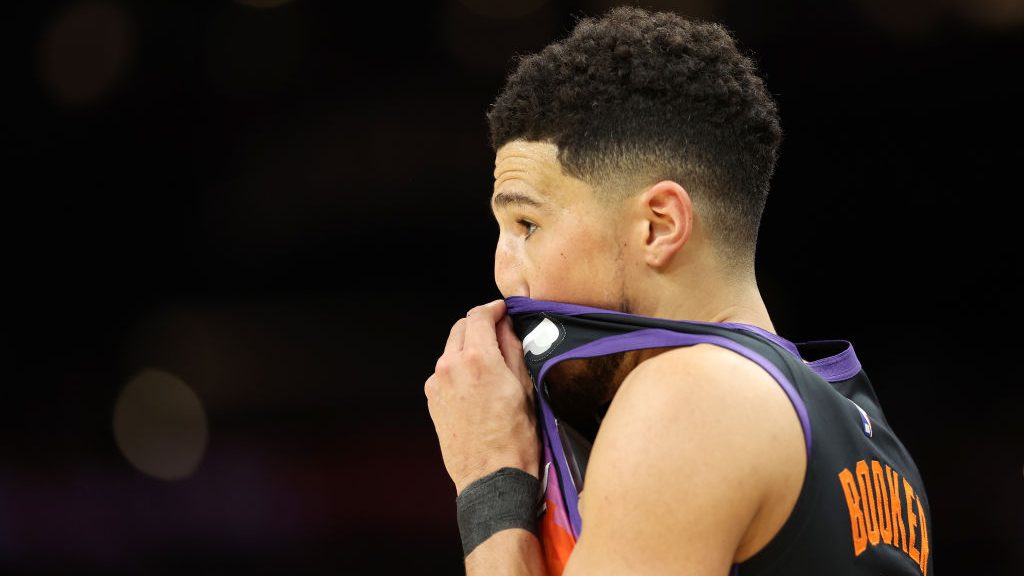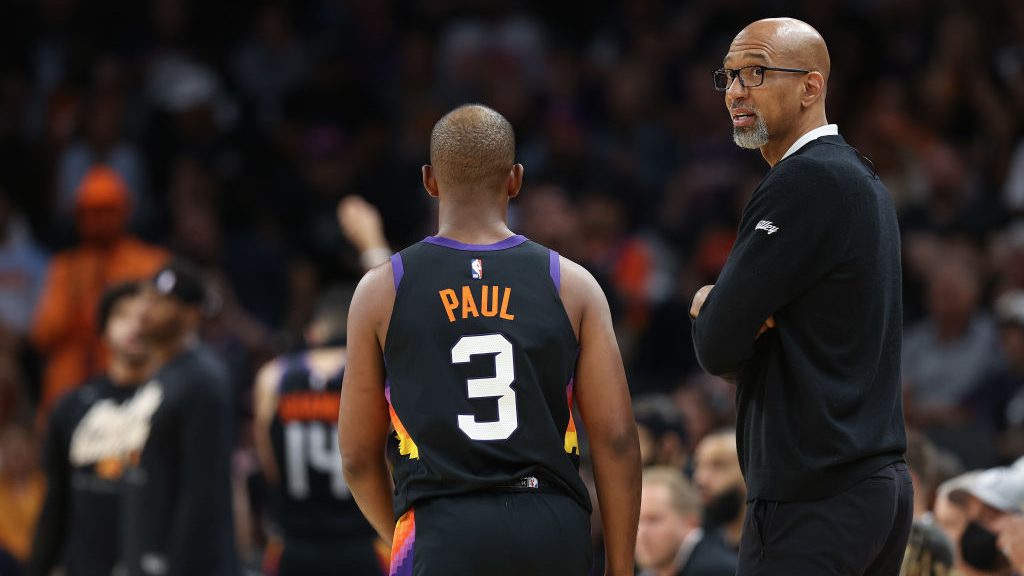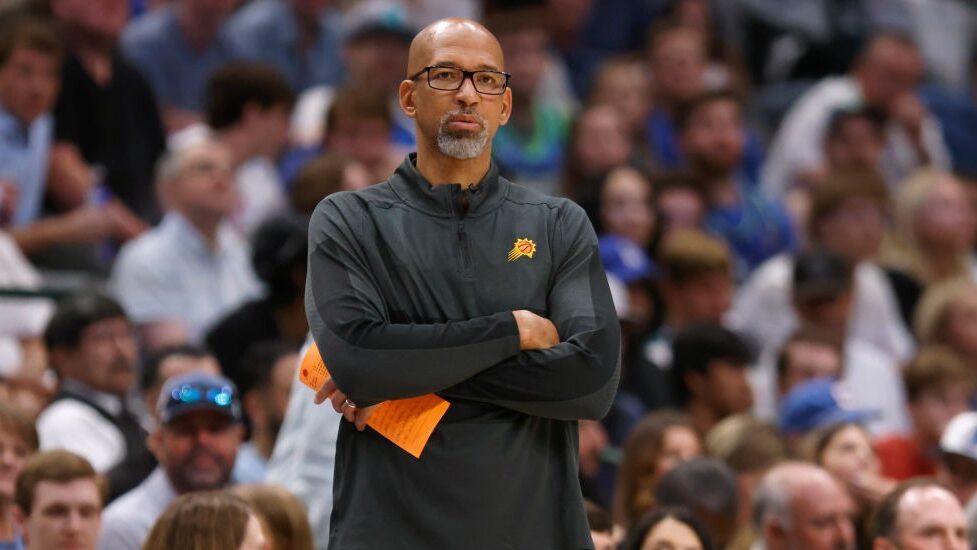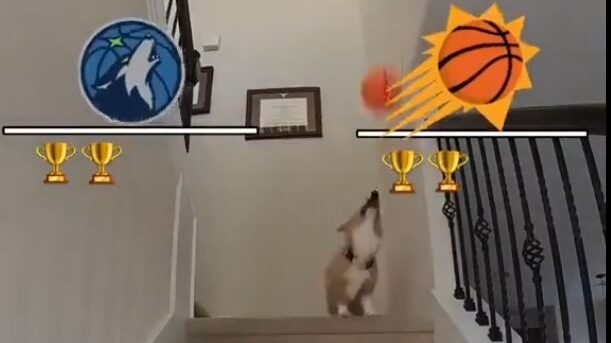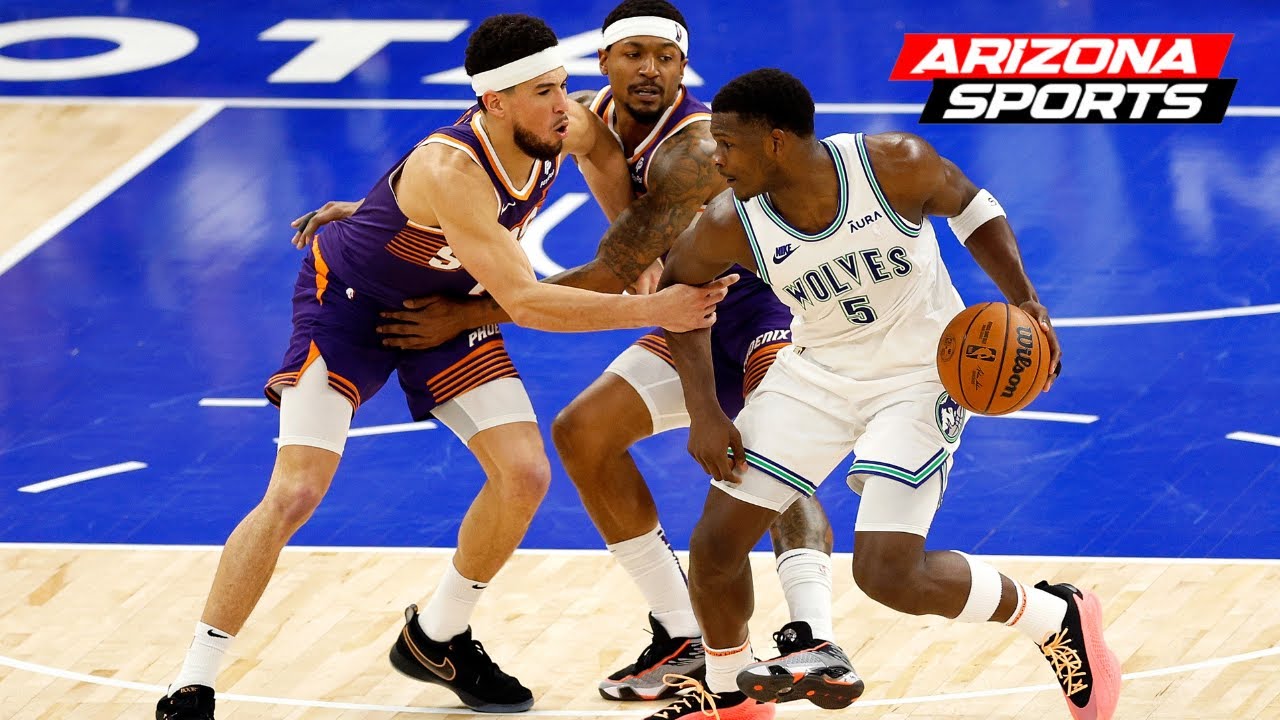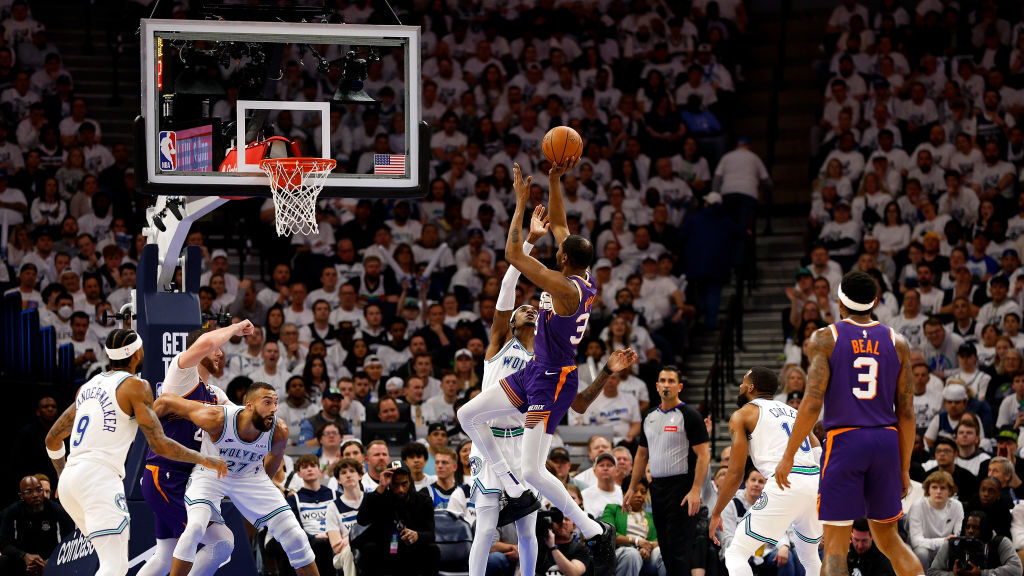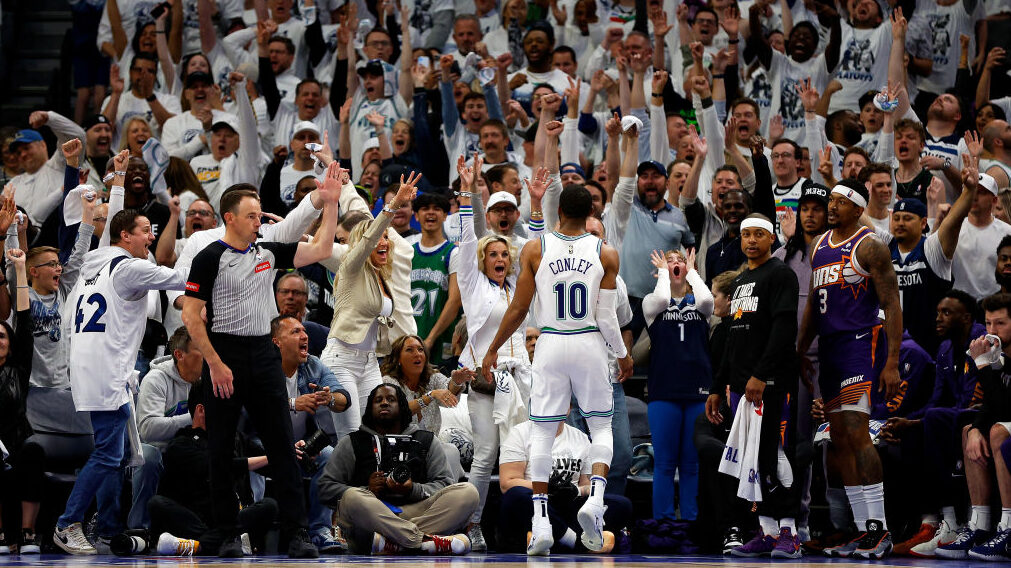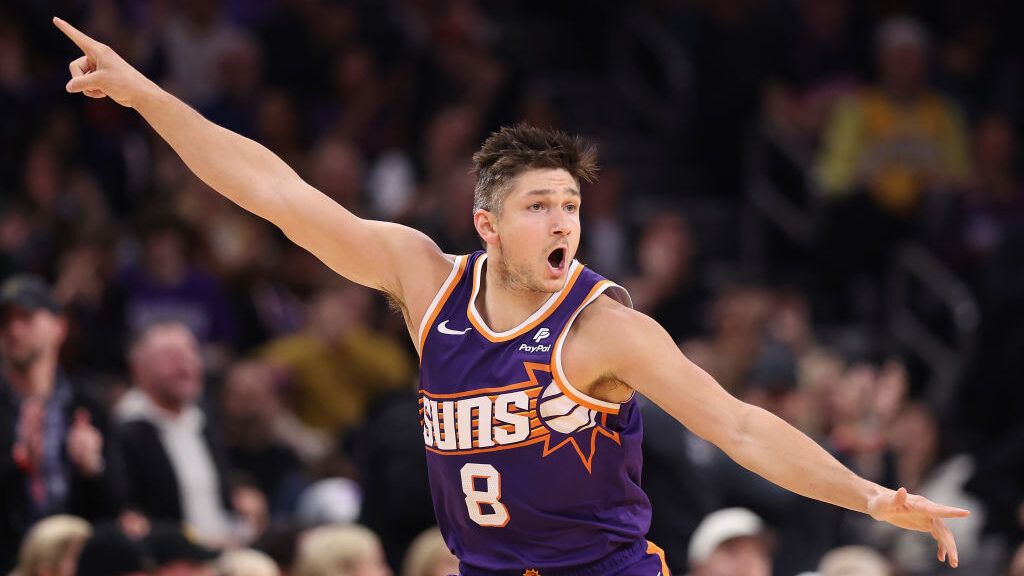ESPN’s Marks: Suns’ title dreams shift to contracts of Deandre Ayton, Devin Booker
May 16, 2022, 11:55 AM
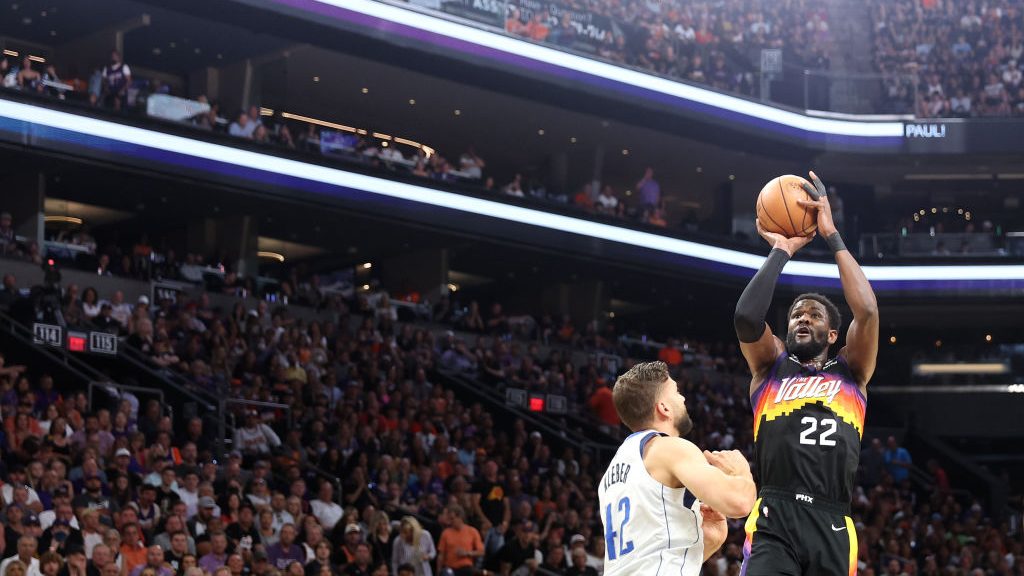
Deandre Ayton #22 of the Phoenix Suns shoots the ball against Maxi Kleber #42 of the Dallas Mavericks during the first half in Game Seven of the 2022 NBA Playoffs Western Conference Semifinals at Footprint Center on May 15, 2022 in Phoenix, Arizona. (Photo by Christian Petersen/Getty Images)
(Photo by Christian Petersen/Getty Images)
The Phoenix Suns’ season came to a shocking end on Sunday, when the Dallas Mavericks took Game 7 of their Western Conference semifinals matchup by 33 points.
For the Suns, it slams the door on a season that brought championship aspirations to the Valley after having the best record in the association.
And while the sting of the Game 7 loss — and the fashion in how things went down — will linger in the minds of many, Phoenix must now turn its attention to the offseason and the critical decisions that come with it.
Mapping out a guide for how the Suns’ offseason could look, ESPN’s Bobby Marks says the championship dreams in the Valley have shifted to the focus of restricted free agent Deandre Ayton.
The Suns and their center didn’t come to a contract agreement prior to this season, putting pressure on Ayton.
Ayton, now 23, was looking to become the sixth center in the NBA to play on a max contract, but Phoenix never offered the center a five-year, $177 million extension last summer.
In Sunday’s season-ending loss, the center played just 17 total minutes and was benched in the second half after three minutes of action.
After averaging 17.2 points per game with 10.2 rebounds on a career-best 63.4% shooting from the field in the regular season, Marks asks if Ayton changed his perception in getting a max deal a year later, which is one of the options the Suns have with the center.
The offseason now presents the question if, after another strong season, Phoenix now views Ayton as a $177 million player or perhaps $136.6 million with one less year. If it does, the top free agent center will be in a Suns uniform for the foreseeable future.
Since his rights are restricted, the Suns have the opportunity to match any offer coming in for Ayton from another team. Marks thinks Phoenix could use the lack of teams with cap space as leverage, with ESPN projecting only four teams (Detroit, Indiana, Orlando and San Antonio) having more than $30.5 million in cap space. Portland is another possibility to have the cap space needed.
Marks says that each of those four teams could offer Ayton a four-year, $131.1 million deal.
Another option the Suns have in the fold with Ayton could be a sign-and-trade in the event they can’t reach an agreement with the center. If they do that, however, Marks says Phoenix will have to cooperate.
Ayton would be subjected to the complex base year compensation rule if he were signed and traded to a team over the cap. For trade purposes, only 50% of Ayton’s incoming salary for a new team applies. That means a $30.5 salary counts as only $15.7 million in incoming salary, but the full amount still applies toward outgoing salary.
The last option Marks highlights for the Suns would be offering Ayton a five-year max deal but heavily incentivizing the last season of the contract, similar to what the Denver Nuggets did with Michael Porter. Jr.
That would in turn lock Ayton up until 2026-27, where as previous options for the Suns could have him becoming an unrestricted free agent after the 2024-25 or 2025-26 season.
Here’s a breakdown of what that max deal for Ayton could look like:
– 2022-23: $30.5 million
– 2023-24: $32.9 million
– 2024-25: $35.4 million
– 2025-26: $37.8 million
– 2026-27: $40.3 million
The contract status of Ayton isn’t the only decision looming over the Suns front office, with All-Star guard Devin Booker likely eligible to receive a four-year, $211 million supermax extension this summer.
Finishing fourth in the league’s MVP voting, Booker will see his name on one of the three All-NBA teams which will make him eligible for the extension that would start in the 2024-25 season.
Still with two years remaining on his rookie max extension deal signed in 2018, Marks thinks giving the guard another max deal could be beneficial.
The supermax tends to come with a warning sign, because often that player is rewarded from the prior years and not his future production. However, considering Booker is coming off his most complete season and will only be 28 at the time the extension kick in, the cost is justified.
The concern with offering Booker the supermax is owing him a total of $113 million the last two years of the deal, when he hits his 30s.
Extensions don’t stop there either for the Suns, with sixth man Cam Johnson being eligible for his rookie extension.
After a career year averaging 12.5 points and shooting 42.5% from deep, Phoenix faces the decision of paying Johnson like a starter.
With Jae Crowder now entering the last year of his contract, Johnson is a priority. But is Phoenix willing to pay starter money for a player who finished third in Sixth Man of the Year voting?
In a small sample size as a starter (16 games), Johnson averaged 16.3 points on 49% shooting from the field.
For team needs, Marks thinks adding a backup power forward or center should be a priority for Phoenix, along with adding resources that can help build the roster.
The offseason came earlier than the Suns wanted, and it’s set to be a pivotal one for the future outlook of the franchise.


